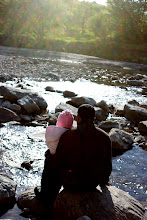When I think of Japan, my heart aches and I am at a loss of words. I am in awe at how the country has coped today and in the past. The Japanese people continue to inspire and therefore, against all odds, there is always hope.
One of my favourite poems that I came across while taking O'level English Literature was James Kirkup's Ghosts, Fire and Water. This poem is based on his impression of the infamous 'Hiroshima Panels' paintings by Iri Maruki and Toshiko Akamatsu (in response to their intense anger at the nuclear bombings). I believe if Japan could recover after the catastrophic tragedy in 1945, it will regain it's strength this time around too.
---------
Ghosts, fire, water
On the Hiroshima panels by Iri Maruki and Toshiko Akamatsu
These are the ghosts of the unwilling dead,
Grey ghosts of that imprinted flash of memory
Whose flaming and eternal instant haunts
The speechless dark with dread and anger.
Grey ghosts of that imprinted flash of memory
Whose flaming and eternal instant haunts
The speechless dark with dread and anger.
Grey, out of pale nothingness their agony appears.
Like ash they are blown and blasted on the wind's
Vermilion breathlessness, like shapeless smoke
Their shapes are torn across the paper sky.
Like ash they are blown and blasted on the wind's
Vermilion breathlessness, like shapeless smoke
Their shapes are torn across the paper sky.
These scarred and ashen ghosts are quick
With pain's unutterable speech, their flame-cracked flesh
Writhes and is heavy as the worms, the bitter dirt;
Lonely as in death they bleed, naked as in birth.
With pain's unutterable speech, their flame-cracked flesh
Writhes and is heavy as the worms, the bitter dirt;
Lonely as in death they bleed, naked as in birth.
They greet each other in a ghastly paradise,
These ghosts who cannot come with gifts and flowers.
Here they receive each other with disaster's common love,
Covering one another's pain with shrivelled hands.
These ghosts who cannot come with gifts and flowers.
Here they receive each other with disaster's common love,
Covering one another's pain with shrivelled hands.
They are not beautiful, yet beauty is in their truth.
There is no easy music in their silent screams,
No ordered dancing in their grief's distracted limbs.
Their shame is ours. We, too, are haunted by their fate.
There is no easy music in their silent screams,
No ordered dancing in their grief's distracted limbs.
Their shame is ours. We, too, are haunted by their fate.
In the shock of flame, their tears brand our flesh,
We twist in their furnace, and our scorching throats
Parch for the waters where the cool dead float.
We press our lips upon the river where they drink, and drown.
We twist in their furnace, and our scorching throats
Parch for the waters where the cool dead float.
We press our lips upon the river where they drink, and drown.
Their voices call to us, in pain and indignation:
'This is what you have done to us!'
Their accusation is our final hope. Be comforted.
Yes, we have heard you, ghosts of our indifference,
'This is what you have done to us!'
Their accusation is our final hope. Be comforted.
Yes, we have heard you, ghosts of our indifference,
We hear your cry, we understand your warnings.
We, too, shall refuse to accept our fate!
Haunt us with the truth of our betrayal
Until the earth's united voices shout refusal, sing your peace!
We, too, shall refuse to accept our fate!
Haunt us with the truth of our betrayal
Until the earth's united voices shout refusal, sing your peace!
Forgive us, that we had to see your passion to remember
What we must never again deny: Love one another.
What we must never again deny: Love one another.
London, 1955
Illustration: New Yorker Cover (March 28, 2011) by Christoph Niemann

























